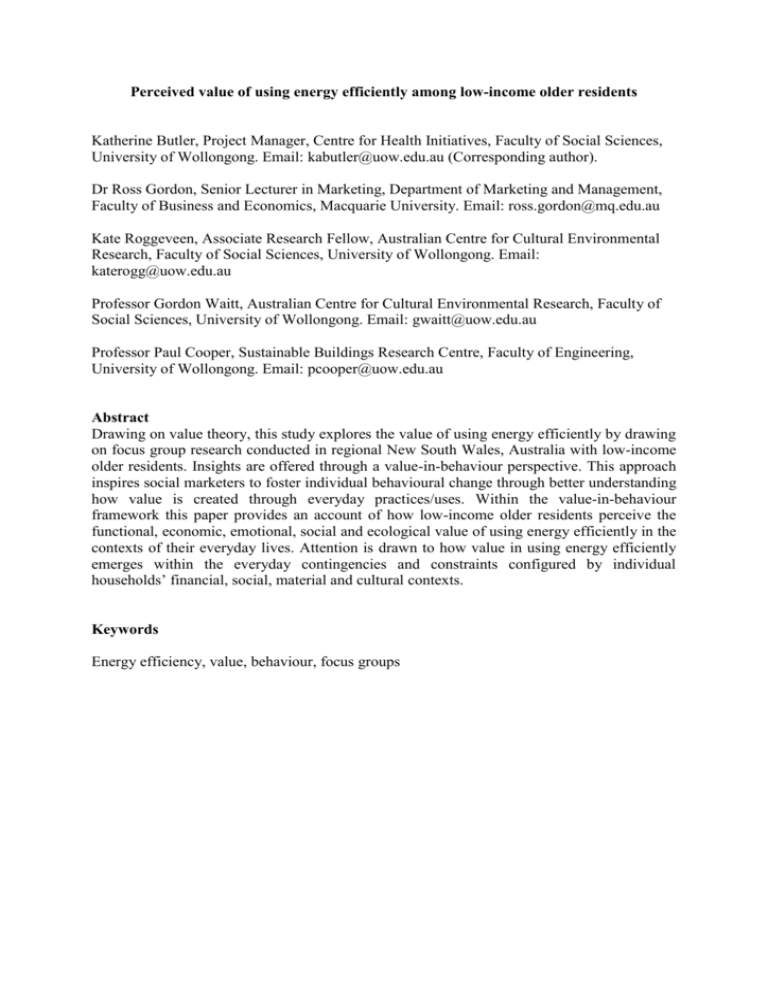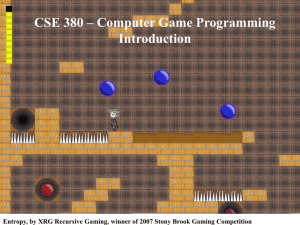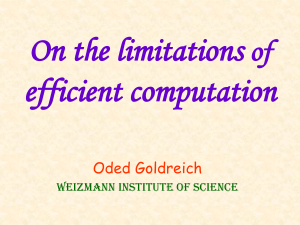Perceived value of using energy efficiently
advertisement

Perceived value of using energy efficiently among low-income older residents Katherine Butler, Project Manager, Centre for Health Initiatives, Faculty of Social Sciences, University of Wollongong. Email: kabutler@uow.edu.au (Corresponding author). Dr Ross Gordon, Senior Lecturer in Marketing, Department of Marketing and Management, Faculty of Business and Economics, Macquarie University. Email: ross.gordon@mq.edu.au Kate Roggeveen, Associate Research Fellow, Australian Centre for Cultural Environmental Research, Faculty of Social Sciences, University of Wollongong. Email: katerogg@uow.edu.au Professor Gordon Waitt, Australian Centre for Cultural Environmental Research, Faculty of Social Sciences, University of Wollongong. Email: gwaitt@uow.edu.au Professor Paul Cooper, Sustainable Buildings Research Centre, Faculty of Engineering, University of Wollongong. Email: pcooper@uow.edu.au Abstract Drawing on value theory, this study explores the value of using energy efficiently by drawing on focus group research conducted in regional New South Wales, Australia with low-income older residents. Insights are offered through a value-in-behaviour perspective. This approach inspires social marketers to foster individual behavioural change through better understanding how value is created through everyday practices/uses. Within the value-in-behaviour framework this paper provides an account of how low-income older residents perceive the functional, economic, emotional, social and ecological value of using energy efficiently in the contexts of their everyday lives. Attention is drawn to how value in using energy efficiently emerges within the everyday contingencies and constraints configured by individual households’ financial, social, material and cultural contexts. Keywords Energy efficiency, value, behaviour, focus groups Introduction Contemporary marketing scholarship has begun to shift away from a core focus on the exchange concept, towards value theory (Grönroos and Voima, 2013). Value can be defined as the regards that something is held to deserve, the importance, worth, or usefulness of something. The shift towards focusing on value creation has been identified as offering a broader perspective for understanding marketing, including social marketing interactions, through its ability to incorporate multiple actors and multiple dimensions involved (French and Gordon, 2014). Early work on conceptualising value in marketing was derived towards goods, and took a value-in-exchange perspective (Porter, 1985). This proposes an economic approach on value, involving a process through which consumers identify value from an evaluation of costs against benefits (Zeithaml, 1988). In the social marketing domain, a valuein-exchange perspective may be useful in understanding interactions involving the transfer of tangible goods such as condoms or screening kits in sexual health programmes. However, social marketing often involves intangible entities, such as the promise of a healthier lifestyle if you exercise regularly. Later, an experiential approach to value, value-in-use was introduced. This conceptualises value as an interactive and relativistic preference experience related to the total experience of consuming goods and services (Holbrook, 2006). Value-inuse identifies that consumer value is realised during the consumption experience, rather than being embodied within goods or services (Sandström et al., 2008). This perspective has obvious relevance to social marketing, as it can help us understand consumers’ perceived value of using a service such as a cancer screening service, including issues such as how long they waited in a queue, how friendly the staff were, and how welcoming the physical aspects of the service are (Zainuddin et al. 2013). The value-in-use perspective has been particularly relevant in understanding service delivery. Yet, not all social marketing programmes, or elements of programmes involve the delivery of services. Whilst value-in-exchange and value-in-use have relevance to social marketing in cases where participants in social programmes may use goods, or services, more recent work has focused on whether and how citizens may perceive value in the actual behaviour(s) required to facilitate social good. Zainuddin and Gordon (2014) have proposed the consideration of a behavioural orientation towards value in social marketing. This perspective proposes that consumers can perceive value that is, or is not, realised through the performance of behaviour. A value-in-behaviour perspective permits consideration of not only consumer perceived value towards exchanging for and using goods, and using and experiencing services, but also towards performing behaviours – e.g. what is the value in exercising daily or what is the value in using energy efficiently. This offers a holistic and multi-dimensional appraisal of value in social marketing. Several dimensions of value have been identified and conceptualised in the commercial marketing literature including functional value, economic value, emotional value, social value, and ecological value (Sweeney and Soutar, 2001; Koller et al. 2011). Functional value refers to the utility, convenience, and control provided by the consumption of something, is extrinsically motivated (perceived as a means to an end), and for the benefit of the self rather than others. In social marketing an example would be the consistency in the quality of a screening service, control over the process, being well delivered, and being of acceptable standard of quality (Zainuddin et al. 2011). Economic value is intrinsically motivated, and focused on price and cost-benefit analysis from consuming goods and services, or from performing behaviours. An example here may be whether using energy efficiently offers value for money. Emotional value is intrinsically motivated (an end in itself) and self-oriented 1 whereby consumption occurs for the emotional experience and for no other end-goal (Holbrook, 2006). This value is related to different affective states that can be positive (e.g., confidence and pleasure) negative (e.g., anger and fear) (Sánchez-Fernández and IniestaBonillo, 2007), or even neutral (ambivalence). For example, people may perceive reduced tension or anxiety from attending a heart health clinic. Social value is also extrinsically motivated, but it is directed at others (Holbrook, 2006). Social value focuses on influencing other people as a means to achieving a desired goal, such as status or influence within groups (Russell-Bennett et al., 2009). For instance, a father might quit smoking if many of his friends do not smoke so that he fits in better when out socialising with them, or he may choose to quit to set a good example to his children. Ecological value is intrinsically motivated, and recognises the increasing importance that citizen’s place on the impacts of their consumption behaviours and experiences on the natural environment (Koller et al. 2011). This type of value focuses utility relating to the perceived impacts on environmental/ecological issues and concerns, and also on its ability to enhance or impact on an individual’s self-concept. Whilst the relevance of value theory to social marketing appears clear, it is only recently that conceptual (Domegan et al. 2013), and empirical work has emerged (Zainuddin et al. 2013). Furthermore, existing work has focused on value-in-exchange and value-in-use in social marketing contexts. This paper seeks to advance understanding of the relevance of value theory in social marketing, through an exploratory study of participant’s perceived value of the behaviour(s) of using energy efficiently in the home. Method The study featured exploratory qualitative focus group research with low-income older residents in regional NSW, as part of a broader, multidisciplinary and multi-component programme to facilitate energy efficiency in an Australian community. The focus on lowincome older residents was guided by the objectives of the funding body for the project, and also given that research suggests that this population segment often face issues with managing energy costs, and living in thermal comfort (keeping warm and keeping cool). An interpretive approach to gaining insight on participants’ perceived functional, economic, emotional, social and ecological value of using energy efficiently was taken. These insights were used to identify the conceptual and practical relevance of value perceptions in the context of social marketing and energy efficiency, and to inform the later development of a social marketing programme seeking to facilitate energy efficient behaviours. A purposive sampling approach was utilised in which local networks were used to recruit people aged 60+ (n=55), with personal disposable income below $26,104 per annum (the Australian Bureau of Statistics threshold for low-income). Eleven focus groups were held (35 females, 20 males), following which a point of data saturation was reached. Groups were conducted with residents in various locations in the region including two in a coastal city, four in the coastal city suburbs, two in a coastal town, and two in a highland town. This helped account for diversity in climatic conditions and likely effects on energy use in the home. Two groups were held with residents in independent living unit (ILU) residential aged care villages, as the larger project includes a component to facilitate energy efficiency in select ILU villages. Information sheets and consent forms were distributed, and written informed participant consent was obtained. Participants were presented with a $50 gift voucher as recompense for their time, and groups were held in participants’ homes, or a local amenity – depending on the preference of participants. A semi structured discussion guide was developed, and was informed by an extensive review of the value theory literature (e.g. Sweeney and Soutar, 2 2001; Koller et al. 2011). The focus here was on exploring respondents’ perceived functional, economic, emotional, social and ecological value perceptions towards using energy efficiently. Example questions included: do you think it is easy to use energy efficiently, do you think it is easy to control (both functional value), does using energy efficiently offer good value for money (economic value), how does it make you feel when you use energy efficiently (emotional value), how might you be perceived by others (social value), and do you think using energy efficiently can make a contribution to the environment (ecological value). Groups were digitally recorded, transcribed, and then entered into the QSR NVivo 10 qualitative data software tool for analysis. A corpus of 13 hours, 14 minutes and 49 seconds of audio, and 443 pages of transcripts was produced. Researchers reviewed the data, met and discussed emergent themes from the data, and proposed a draft coding structure. The researchers further considered and revisited this thematic analysis during an iterative process involving numerous meetings to reach a negotiated interpretation and representation. Results Analysis of the focus group transcripts found that participants in all groups were fairly conscious of the topic of energy efficiency – describing practices like “being aware of how you use it”, “being aware how you use electricity and not waste it”, “being careful”, “only using when you need”, and also utilising energy efficiency materials like solar panels. Participants also displayed distinguishable value perceptions towards behaviour(s) relating to using energy efficiently. This reinforces the relevance of the value-in-behaviour perspective proposed by Zainuddin and Gordon (2014). Functional value Functional value was identified as important in relation to using energy efficiently. Participants stated that using energy efficiently is not necessarily something that is easy to do, and it requires effort and commitment. “I don’t think it’s easy but I think once you’ve committed to it then it becomes easier” (Group 2). “Not a lot but it does take a bit of effort and a bit of commitment” (Group 3). There was often heterogeneity in the views of the functional value of using energy efficiently, for instance participants in focus group 7 commented: “I think it’s easy Hmm, you have to put a lot of thought in it Keep on thinking all the time, am I doing the right thing or not” (Group 7). Some participants identified that using energy efficiently is something that can be controlled and done consistently through making it a habit and getting into a routine. The functional, and indeed economic value of doing this was also expressed. “It’s habit forming. It’s a way of life. You just don’t think about it, it becomes a habit” (Group 1). “To a certain degree you can (control it). Seeing how we were able to reduce that massive bill by using solar energy and being mindful of our energy use” (Group 2). “Our generation, when we cook we’ll make a pot of soup and freeze it and that saves whole complete meal being cooked again. It’s little things like that.” (Group 8). Others identified that it can be challenging, and felt a lack of control over being able to use energy efficiently. “If you’re not in the habit it takes a while to get yourself into it. You forget to turn it off and think it doesn’t matter” (Group 6). 3 “Sometimes you can’t control it. As you get older you get more forgetful about things. We do anyway and it’s a good idea to go around and check the place before you go to bed because many a time we – or me – have left a light on” (Group 4). Many participants also mentioned the utility of using energy efficiently. For example, people discussed comfort in being able to use their heater when cold because they had been diligent in their energy use, or feeling safe by keeping their home well lit using energy saving lighting. Therefore, the functional value of using energy efficiently appeared to be a relevant concept in this study. This suggests that social marketing programmes to encourage energy efficient behaviours may benefit from communicating and facilitating their functional value, making it easier to do and identifying the utilitarian benefits. Economic value The economic value of using energy efficiently was identified as the most pertinent value dimension in nearly all of the focus groups. Indeed, when discussing other value dimensions, economic value would often be mentioned. Given the low-income status of participants, and increasing concerns over rising energy prices this may be unsurprising. “Well, being energy efficient is going to save you money isn’t it? It’s great…It makes a big difference” (Group 1). “I found in the last 12 months since she’s gone that I am very conscious of use of electricity. I only have one light on of a night time which is a small light, just for reading or whatever, TV of course. Computer. But it has made me more conscious and acutely aware of what I can do to cut down on cost. Using the washing machine, clothing washing, I find I can get by with once a week.” Many participants discussed how their primary concern and motivation when using energy was to save or reduce economic costs. This was not universal, and a few people mentioned that they just used energy without thinking about the costs. “Cost. The price. I think in general people are using less because they’re more aware of it. And on a low income – when you get hit with a big bill like that” (Group 3). “Well it helps – it helps pay the bill doesn’t it” (Group 8). “I don’t think of it that way I’m afraid. If I need it I use it but I don’t think I particularly waste it” (Group 9). In relation to the economic value of using energy efficiently, the findings here suggest that it is a primary motivation. Therefore, social marketing programmes could benefit from accentuating the economic value of using energy efficiently. Emotional value Emotional value did not appear to be as relevant in relation to using energy efficiently among study participants, compared to other value dimensions. A common refrain was that the emotional value of using energy efficiently was never or rarely considered. “Making me feel safe? I never think about it that way…Protected, I would never think of that connotation” (Group 1). “I don’t have any particular feeling about it you know” (Group 9). Nevertheless, some participants did mentioned that it might make them feel pleased, or even righteous if they had been energy efficient, or that it may make them feel less stressed and worried. Q: What about happiness? “It makes us feel pleased I think”. Q: What about the emotion of feeling calm? “You’re not getting worked up about it or worried” (Group 1). 4 “Righteous, I feel righteous” (Group 4). Social value Social value also appeared to be a less relevant value dimension. Participants discussed how they did not think that using energy efficiently would have much influence on how others viewed them, or could offer social status. “To be honest I don’t think about it. I just do it. I don’t think if affects it [how others see you]” (Group 4). “I don’t discuss it with others. I don’t think so. I don’t think they’re aware” (Group 9). Ecological value In addition to functional and economic value, ecological value appeared to be an important value dimension to some participants, who identified that using energy efficiently could make a contribution to helping the environment. “It contributes [to helping the environment] but its not a conscious thought … It’s more money saving. Driven by money” (Group 1). “It’s very important. I think so too. I think it’s very important” (Group 4). However, for some these thought processes were still intertwined with considerations of the economic dimensions. “I think it’s environmental as well as cost” (Group 5). “It probably is a bit of both. I think it’s a bit of both – economic and environmental” (Group 8) In identifying the ecological value of using energy efficiently, several participants stated that a strong motivation was to make a difference so that younger generations would not suffer from the adverse impact of environmental degradation. “Closely followed and almost equal to (economic value) but not quite, the environmental issues because I think people, certainly our generation is much more aware of it.” (Group 2). “You’re helping to save the planet aren’t you, if you’re going to do the right thing … We’re thinking of the kids coming up now – what’s the world going to be like for them. We’ve got to do something – or do our bit anyway” (Group 3). Discussion This exploratory study aimed to explore and gain insight on low-income older participants value perceptions towards using energy efficiently. Analysis of the data identified that economic value; functional value and ecological value appeared to be important and relevant. This has relevance to social marketing practice, as interventions on the topic could benefit from accentuating the costs savings and financial rewards in performing energy efficient behaviours. Furthermore, interventions that help facilitate making it easy to use energy efficiently perhaps through training, or installation of accessible energy saving appliances and equipment could be effective. In addition, some people identified ecological value as being important. Accordingly, social marketing programmes could identify how using energy efficiently in your own home can make some incremental positive difference to the 5 environment. In addition, doing something to help future generations was pertinent to many participants, so messages that communicate how saving energy can help future generations might be effective. From a theoretical perspective, the current study is one of the first to empirically explore the concept of value-in-behaviour, and has identified that study participants do appear to hold value perceptions towards behaviour(s) in a social marketing context. This suggests the utility of broadening the scope of value theory beyond value-inexchange, and value-in-use to a value-in-behaviour perspective. Further empirical research in different social marketing contexts, and oriented to different behaviours can help further the knowledge base in this area. References Domegan, C., Collins, K., Stead, M., McHugh, P., Hughes, T. (2013). Value co-creation in social marketing: functional or fanciful? Journal of Social Marketing, 3(3): 239-256. French, J., Gordon, R. (2014). Strategic social marketing. London: Sage. Grönroos, C., Voima, P. (2013). Critical service logic: Making sense of value creation and cocreation. Journal of the Academy of Marketing Science, 41(2): 133-150 Holbrook, M. B. (2006). Consumption experience, customer value, and subjective personal introspection: An illustrative photographic essay. Journal of Business Research, 59(6): 714-725. Koller, M., Floh, A., Zauner, A. (2011). Further insights into perceived value and consumer loyalty: A “green” perspective. Psychology and Marketing, 28(12): 1154-1176. Porter, M. E. (1985). Competitive Advantage: Creating and Sustaining Superior Performance. New York: The Free Press. Russell-Bennett, R., Previte, J., Zainuddin, N. (2009). Conceptualising value creation for social change management. Australasian Marketing Journal, 17(4), 211-218. Sánchez-Fernández, R., Iniesta-Bonillo, M. Á. (2007). The concept of perceived value: A systematic review of the research. Marketing Theory, 7(4): 427-451. Sandström, S., Edvardsson, B., Kristensson, P., Magnusson, P. (2008). Value in use through service experience. Managing Service Quality, 18(2), 112-126. Sweeney, J. C., Soutar, G. N. (2001). Consumer perceived value: The development of a multiple item scale. Journal of Retailing, 77(2): 203-220. Zainuddin, N., Gordon, R. (2014). Social marketing, value, and behaviour: Some important considerations. Paper presented at the International Social Marketing Conference, Frankston, July 2014. Zainuddin, N., Russell-Bennett, R., Previte, J. (2013). The Value of Health and Wellbeing: An Empirical Model of Value Creation in Social Marketing. European Journal of Marketing, 47(9): 1504-1524. Zeithaml, V. A. (1988). Consumer perceptions of price, quality and value: A means-end model and synthesis of evidence. Journal of Marketing, 52(3): 2-22. 6






